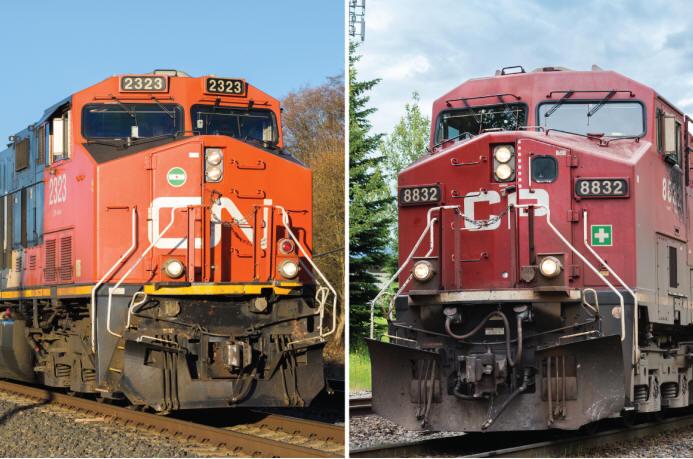
General Committee of Adjustment CP West

Move would avoid potential simultaneous work stoppages at both companies
Ottawa, June 7, 2024 – Canadian National (CN) and Canadian Pacific Kansas City (CPKC) rejected a proposal from the Teamsters Canada Rail Conference (TCRC) to stagger negotiations with both companies by two weeks. The move would avoid simultaneous work stoppages at CN and CPKC, significantly reducing the economic impacts from any disruptions to the supply chain from a strike or lock out.
“Staggering the negotiations is a sensible solution that would minimize disruptions and allow all parties to address their concerns in a more structured and productive manner. CN and CPKC’s rejection of this proposal is a clear indication of how little they care about the economy and the supply chain, as well as their unwillingness to negotiate. Quite frankly, they are using multinational corporations, the Canadian public, and North American supply chains as pawns to further their own greed,” said Paul Boucher, President, TCRC.
“A work stoppage has never ever been our end goal. Our members at both carriers simply want a fair and equitable collective agreement – one that does not compromise their quality of life or their safety. Both CN and CPKC are standing in the way of that,” added Boucher, President.
A work stoppage was initially possible on May 22, following a near-unanimous strike mandate given by workers at both companies should negotiations fail. However, the federal government temporarily suspended the union’s right to strike and asked the Canada Industrial Relations Board (CIRB) to examine the question of essential services.
Until the CIRB hands down a ruling in the coming weeks on whether any shipments are safety-critical in the event of a strike or lockout, parties should be negotiating, but both companies continue to demand concessions or have simply stopped negotiating altogether. Claims by both CN and CPKC that they are trying to modernize or bring more work-life balance to the workforce are nothing less than preposterous. Their so called “modern agreements” call for our members to spend more time at work, remove clauses from the agreements that allow quality of life, and remove clauses that improve safety for both our members and the general public.
With workers’ right to strike temporarily suspended by the government, and negotiations at both companies stalled, neither company appears willing to compromise absent the threat of a work stoppage.
Both companies have demanded major concessions, in some form or another, on articles pertaining to crew scheduling, hours of work, and fatigue management. Their demands undermine rail safety in Canada and remain a major stumbling block.
Hit by labour shortages, both CN and CPKC are trying to squeeze even more availability out of trains crews, all in an effort to move more trains no matter the cost to our members and the public just to further their own goals of higher and higher profits. The end result will mean train crews would be forced to stay awake even longer, increasing the risk of derailments and other accidents.
CPKC aims to gut the collective agreement of all safety-critical fatigue provisions. CN has offered the union to keep some of its language around fatigue contingent on the acceptance of a scheme where workers would be forced to relocate across the country for several months at a time to fill labour shortages in remote areas of the country where CN is chronically short of employees.
Compromising on safety, or threatening to tear families apart for months or years, are not solutions to staffing problems. CN and CPKC should instead be looking to improve working conditions and adopt a more humane approach to railroading in order to attract more workers.
For example, rail traffic controllers (RTCs) at CPKC are chronically 25% understaffed. RTCs coordinate the safe movement of trains – both passenger and freight – across a carrier’s network. Despite their critical importance, there has been a net hiring loss since 2021 because of a toxic work environment.
“Rail workers keep our economy running by keeping the supply chain fluid and goods moving to their destinations despite all the challenges our members face from the carriers. Our members deserve better than being forced to compromise their safety for the profits of CN and CPKC, whose demands threaten not just our members’ quality of life but the safety of our rail system,” concluded Boucher.
At over 125,000 members, Teamsters Canada is the country’s largest transportation and supply chain union. It’s also the largest union in the federally regulated private sector. They are affiliated with the International Brotherhood of Teamsters, which represents over 1.2 million workers in North America.
-30-
Media requests:
Christopher Monette
Director of Public Affairs
Teamsters Canada
Cell. : 514-226-6002
cmonette@teamsters.ca